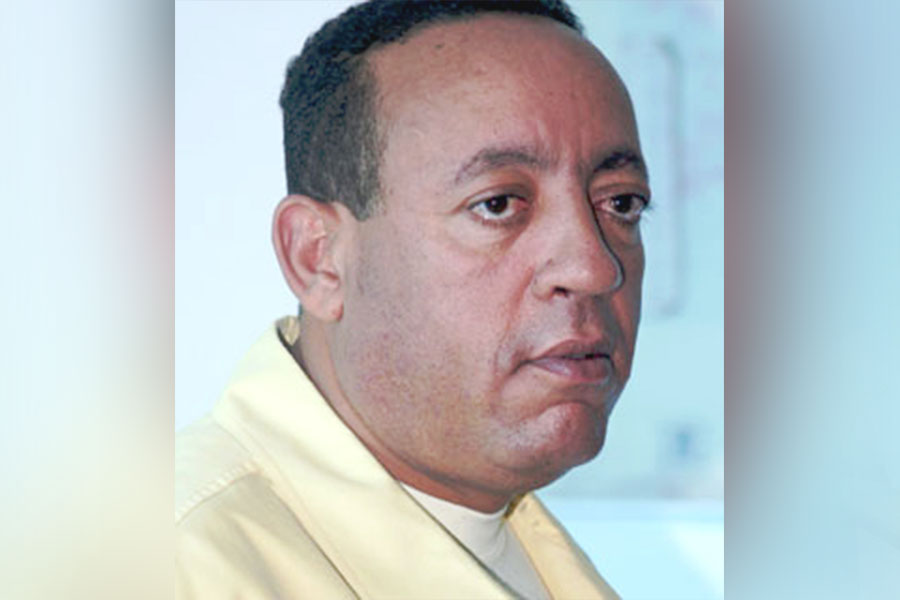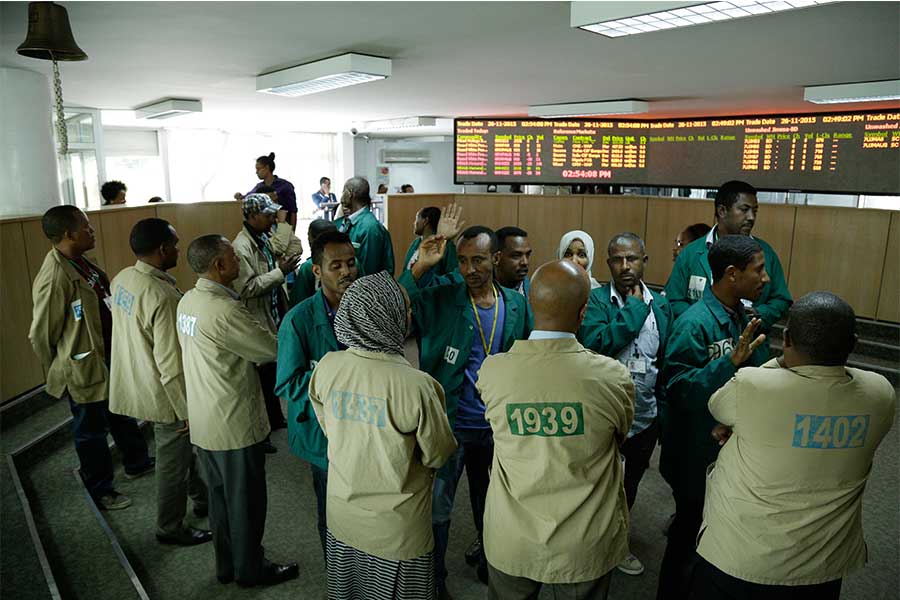
Fortune News | Jul 02,2022
The mandate to approve cement supplies to public construction projects moved last week to the Ministry of Trade & Regional Integration (MoTRI).
Registrations to buy cement and approvals for sale were under the Construction Works Regulatory Authority. The Ministry signed a memorandum of understanding (MoU) with the regulatory Authority three months ago to provide public project services in registration, evaluation and approval.
Project owners are required to fill out a registration data collection form, helping the federal agency supervise progress on 230 projects. Its officials claim to have saved 1.5 million quintals of cement from landing in the hands of intermediaries.
The mandate was granted to the Authority, considering its access to professionals and competence to project demands.
However, the Ministry decided to rescind the responsibility due to the workload. The Ministry's officials argue this has created a lengthy and time-consuming process.
"There was a workload on the Authority," said Teshale Belihu, state minister for Trade.
Abebe Banjaw, the Authority's director for building standards, conceded.
''We couldn't operate due to the workload," he told Fortune.
The Ministry began allocating cement last week, prioritising eight public projects under Ethio telecom, the Federal Police, and the Defence, Education, and Health ministries.
Ministry of Health handles 600 projects in the capital and regional towns, including a two-storey regional laboratory facility under construction in Deber Berhan, 130Km northeast of the capital. The Ministry had placed a demand to buy 4,535qtl of cement two months ago. However, it is yet to receive the cement.
The Authority has sent a letter to the Trade Ministry, approving the Health Ministry's 62pc demand to see through the project completion in Debre Berhan in the next three months. However, the long and intricate cement supply chain has caused delays in public projects. Private projects have not been receiving supplies due to severe shortfalls in production.
"It would be better if projects get supplies directly from factories," said Taddese Yemane, infrastructure director at the Health Ministry.
Construction projects under sugar factories, Ethiopian Electric Power, universities and referral hospitals also require cement to complete projects under their oversight.
The Authority recently approved 214qtls of the nearly half a million quintals requested by Bule Hora, Wello, Debere Birhan, Haromaya, and Debre Markos universities.
The Authority's director argued that the gap between the demand and supply of cement should alert the government to focus on boosting cement production rather than controlling the distribution system.
Established in 1995, Samcon Engineering Plc handles construction works for regional offices, universities, and private residences. The construction of Borena University is one of the eight public projects it undertakes.
Samuel Sahlemariyam, the general manager, fears the Ministry reclaiming the mandate will roll back the cement supply chain.
"The Authority was handling the distribution procedure better," he told Fortune. ''This will only exacerbate the shortage."
The process gets more complicated when a third party, such as the Ministry, is involved in the supply chain. Industry players blame state interference in the cement market for recurrent shortages.
Kefelegn Hailu is an expert and business consultant who has been in the industry for over two decades. He argued that the situation aggravates whenever the government tries to get involved in the distribution process.
"This has been an issue for the last four years," said Kefelegne.
He called for a transparent distribution regime as the only way to deal with the problem.
The Construction Contractors Association, led by Girma Habtemariaman, is an industry lobby established 30 years ago. It represents close to 2,500 contractors.
Girma warns that the new process will pave the way for corruption as the Ministry is not positioned to forecast the volume of cement projects needed.
The national cement annual demand of 12 million tonnes exceeds production by four million tonnes. Shortages of inputs, spare parts, and security concerns in the area where four of the biggest plants operate impede manufacturers from operating at full capacity.
Derba Midroc Cement, owned by the business tycoon Mohammed Al-Amoudi (Sheikh) and his family, is among the country's largest cement producers. Incorporated in 2012 with a registered capital of 385 million dollars, it operates at 60pc capacity, made to supply public projects, mainly hydroelectric power plants such as the GERD and Koysha Dam.
The general manager Haile Assegid believes that changing the distribution channel will not address the fundamental problem in the market.
"Working on the production will be a solution," he said.
Haile hopes to see Derba's problems addressed and resume operations at full capacity.
PUBLISHED ON
[ VOL
, NO
]

Fortune News | Jul 02,2022

Radar | Jan 16,2024

Fortune News | Nov 21,2018

Agenda | Aug 17,2019

Fortune News | Mar 14,2020

Radar | Feb 26,2022

Radar | Apr 26,2019

Commentaries | Dec 23,2023

Radar | Jan 04,2020

Radar | Dec 07,2019

Jul 13 , 2024 . By AKSAH ITALO
Investors who rely on tractors, trucks, and field vehicles for commuting, transportin...

Jul 13 , 2024 . By MUNIR SHEMSU
The cracks in Ethiopia's higher education system were laid bare during a synthesis re...

Jul 13 , 2024 . By AKSAH ITALO
Construction authorities have unveiled a price adjustment implementation manual for s...

Jul 13 , 2024
The banking industry is experiencing a transformative period under the oversight of N...

Jul 20 , 2024
In a volatile economic environment, sudden policy reversals leave businesses reeling...

Jul 13 , 2024
Policymakers are walking a tightrope, struggling to generate growth and create millio...

Jul 7 , 2024
The federal budget has crossed a symbolic threshold, approaching the one trillion Bir...

Jun 29 , 2024
In a spirited bid for autonomy, the National Bank of Ethiopia (NBE), under its younge...